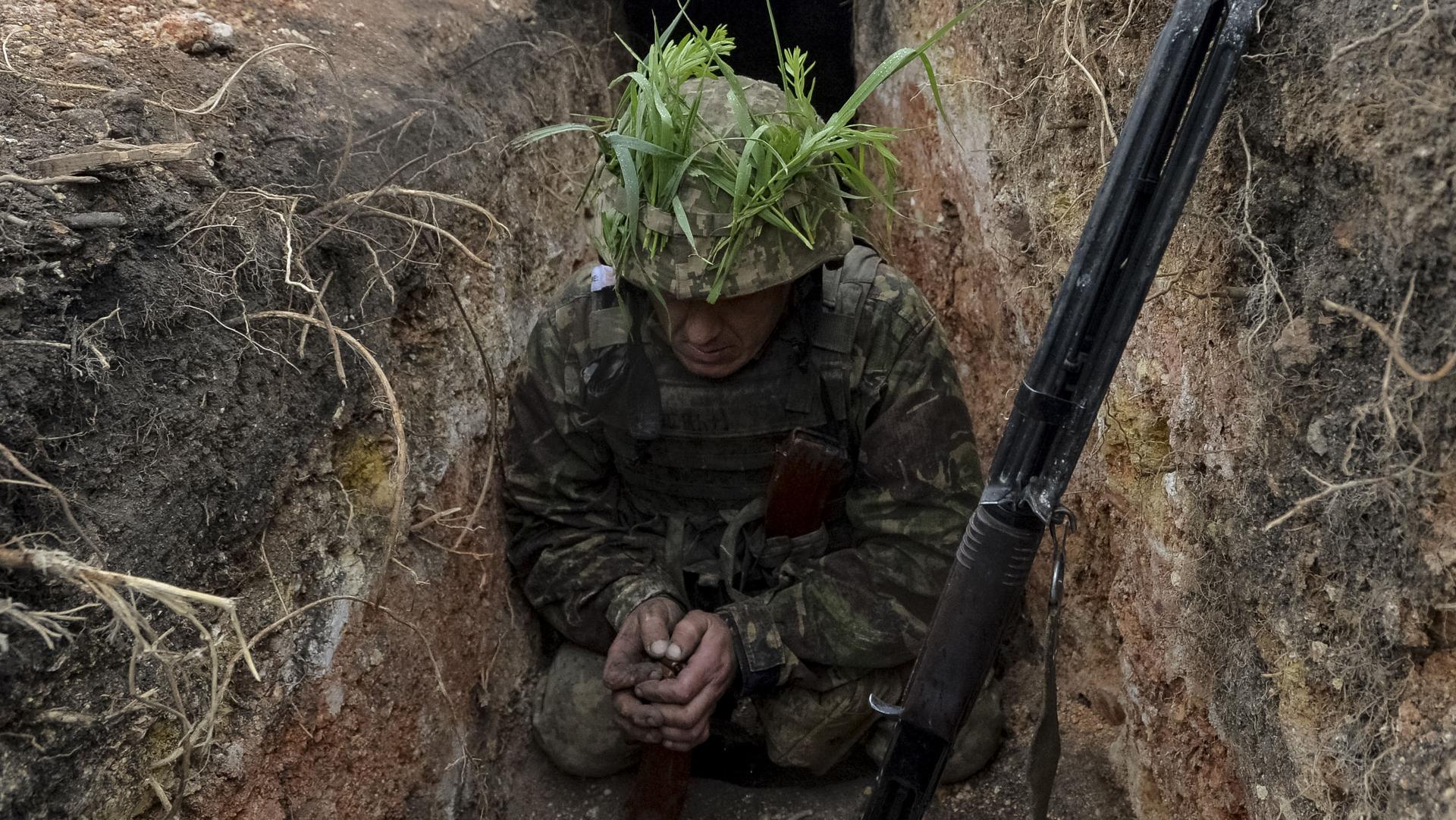Trump cozying up to Russia? Not in Ukraine.
A Ukrainian servicemember loads magazines at his position on the front line in the government-held town of Avdiyivka, Ukraine, on May 22.
Between President Donald Trump's attempts at friendship with Russia and the investigation into his campaign’s alleged collusion with the Kremlin, you might think the administration would avoid locking horns with Moscow.
But US Congress passed fresh sanctions against Russia. And Moscow is already retaliating with heavy penalties of its own — kicking out 755 US government personnel. It’s a politically sensitive dilemma for the US president, who has yet to sign the sanctions into law.
However, a closer look at the Trump administration’s policy toward Ukraine lately reveals the government is weighing a move that would infuriate the Kremlin even further.
America’s new special envoy to Ukraine recently said Washington is considering arming Kiev with defensive weapons to help Ukraine combat Moscow-backed separatists.
Kurt Volker, a hawkish career US diplomat who visited front-line settlements in eastern Ukraine just two weeks after his July 7 appointment, said the president is reviewing a policy shelved by Barack Obama’s administration.
“The Trump administration is now reviewing where the Obama administration left it, considering whether we should provide defensive arms to Ukraine or not,” Volker said in an interview last week with Radio Free Europe/Radio Liberty.
“Russia is already in Ukraine, they are already heavily armed,” he said. “There are more Russian tanks there than in Western Europe combined. It is a large, large military presence. And there’s an even larger military presence surrounding Ukraine from Russian territory.”
Moscow denies being a party to the conflict in eastern Ukraine, but it is a key player in peace negotiations.
Related: In Kiev, assassinations are becoming commonplace
That the Trump administration is returning to the issue — and its envoy is talking so tough — is a big deal.
Critics say arming Ukraine could provoke Russia and risk further fueling a war that’s already killed more than 10,000 people in three years. But proponents argue that the US should help Ukraine better defend itself.
Matthew Rojansky, director of the Kennan Institute at the Woodrow Wilson Center, says the White House appears more “action-oriented” than before in its policy toward Russia and Ukraine. That means breaking from Obama’s attempted isolation of Moscow while also potentially doubling down on support for Kiev.
“There’s still a tension between those two positions, but it could be a productive tension,” he says. “I think we have to see how it plays out.”
US already sends Humvees and drones
Currently, the United States provides limited, nonlethal support to Ukraine’s military, including training and equipment such as surveillance drones and Humvees. Ukraine’s leadership has long sought more.
Meanwhile, there are other signs that the Trump administration isn’t abandoning ex-Soviet republics to their former masters in Moscow.
Vice President Mike Pence arrived in Estonia on Sunday for the start of a three-country tour. The three Baltic countries — Estonia, Latvia and Lithuania — have feared the Kremlin’s expansionism since Russia’s invasion and annexation of Crimea from Ukraine in 2014.
“Under President Donald Trump, the United States of America rejects any attempt to use force, threats, intimidation, or malign influence in the Baltic States or against any of our treaty allies,” Pence said Monday in a news conference with Baltic leaders, The Washington Post reported.
“To be clear, we hope for better days, for better relations with Russia, but recent diplomatic action taken by Moscow will not deter the commitment of the United States of America to our security, the security of our allies, and the security of freedom loving nations around the world,” Pence said.
Related: How Russia is testing Trump on Ukraine
But why risk provoking Russia? Rojansky suspects the decision to arm Ukraine, if it’s made, is at least partly based on a perceived weakness in the previous president’s approach.
“Arguably, if you’re presenting the case to the president in this way, you say, ‘The Obama administration did the worst of both worlds,’” he says. “In other words, there was a lot of talk, but not a lot of action.”
From Ukraine’s standpoint, some officials already appear pleased with Volker’s appointment.
Lawmaker Oleksiy Ryabchyn, who met with Volker during the envoy’s recent visit to Kiev, wrote, “It seemed to me that the US State Department’s special envoy to Ukraine familiarized himself with the situation pretty quickly, and is already trying to delve into all the details.”
